Paul Rudd says Ant-Man and the Wasp Quantumania ‘feels like something else’
Paul Rudd’s latest Ant-Man movie is very aware of the limited nature of time – and so is its leading man.
When is an Ant-Man movie not an Ant-Man movie? When it’s Ant-Man and the Wasp: Quantumania.
The third instalment in the Ant-Man corner of the Marvel Cinematic Universe is different enough in tone and ambition that even Ant-Man himself, star Paul Rudd, thought like they were making something different.
“I think people will watch this and go, ‘Wow, I can’t believe this is an Ant-Man movie’. It doesn’t feel like that, it feels like something else,” Rudd told news.com.au.
“And [director] Peyton [Reed] has said before it always felt as if the Ant-Man movies were a bit of a palette cleanser, because they came after Infinity War and then have our Ant-Man movie, or some other big movie and then it’s Ant-Man in between the other next big enormous Marvel adventure.
“This one felt like, ‘Oh, this is not a palette cleanser, this is the beginning of Phase Five, and actually this thing feels like the movie that in the past maybe we came out afterwards.”
Quantumania is Rudd’s fifth excursion in the MCU, and after eight years in the Ant-Man suit, he still feels a tinge of trepidation going into it, especially knowing how ambitious this one would be.
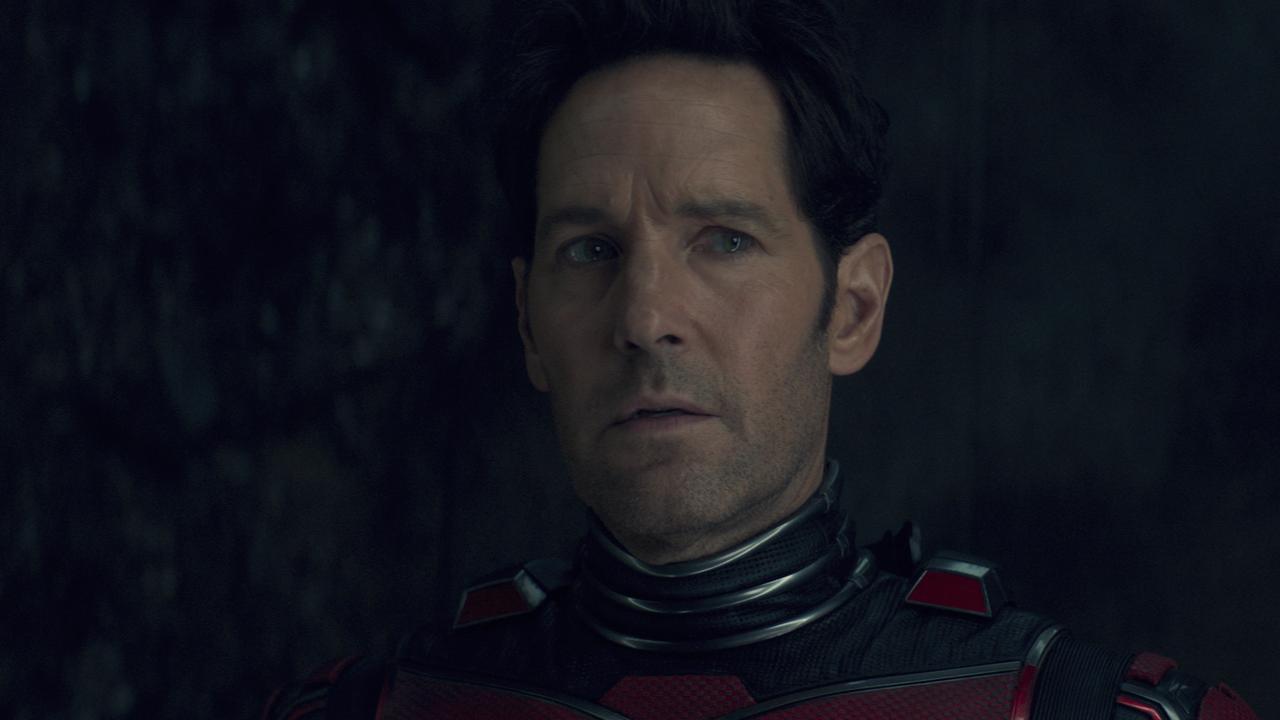
“It was certainly going to be bigger than the first two,” he proclaimed.
Reed described it as a “operatic, crazy battle” and wanted it to feel as if “Scott and Hope suddenly found themselves in a massive Avengers movie without the other Avengers”.
The Ant-Man movies have always been the smaller-scale capers of the MCU. While the Captain America or Avengers movies might be epics with lofty themes, the Ant-Man films kept things contained, even, you might say, small.
The 2015 Ant-Man and the 2019 Ant-Man and the Wasp both kept things largely in San Francisco, and centred on Scott Lang’s relatable struggles as a reformed thief and divorced dad. Saving the world was cool, but being there for your kid was equally important.
Rudd’s brand of irreverent charm aligned so well with the Ant-Man movies’ goofy vibe. This is a corner of the franchise where a climatic fight took place not on a speeding train in Korea but on a Thomas the Train Engine toy set in a child’s bedroom.
Reed, whose background was in directing studio comedies such as Bring It On and Down With Love, brought that playfulness to a couple of movies that didn’t take themselves too seriously.
Quantumania is a different beast. As Rudd mentioned, it’s a movie that is smack bang in the centre of the MCU’s wider plot machinations, rather than just sitting adjacent.
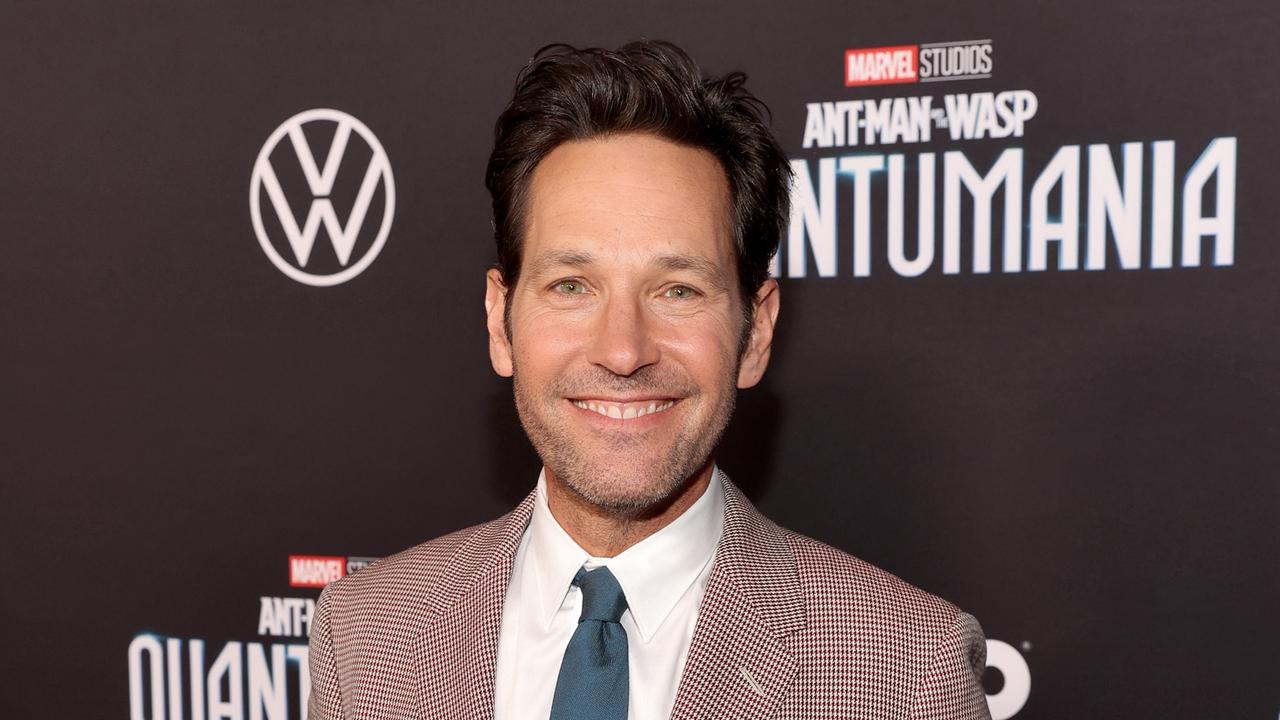
It’s a film that kicks off the MCU’s Phase Five and the first proper introduction of the Big Bad of The Multiverse Saga (the collective name given to the MCU’s phases four, five and six), Kang the Conqueror.
A variant of the character (remember, we’re now dealing with parallel universes) made a memorable appearance in the season one finale of Disney+ series Loki, but this is the real debut of the iconic villain who will terrorise all our heroes for at least the nine more movies (and even more streaming series) that have been announced.
Despite the upgrade in scale, Rudd is adamant though, that Quantumania still shares the same DNA as the first two films – the family relationships at the core of the Ant-Man characters.
“The conflict within Scott are family conflicts and dramas. That’s the thing those movies really hang their hats on, the relationships between the parents and the kids,” Rudd explained. “We don’t lose sight of that. Even though this thing feels so different than the first two, it’s not completely different.”
Reed said the story is hinged on the dynamics between Scott and his daughter Cassie, who is now 18 years old. Scott missed five years of Cassie’s life after being trapped in the MCU’s Quantum Realm during the “Blip”, when the previous saga’s Big Bad, Thanos, disappeared half the universe’s population.
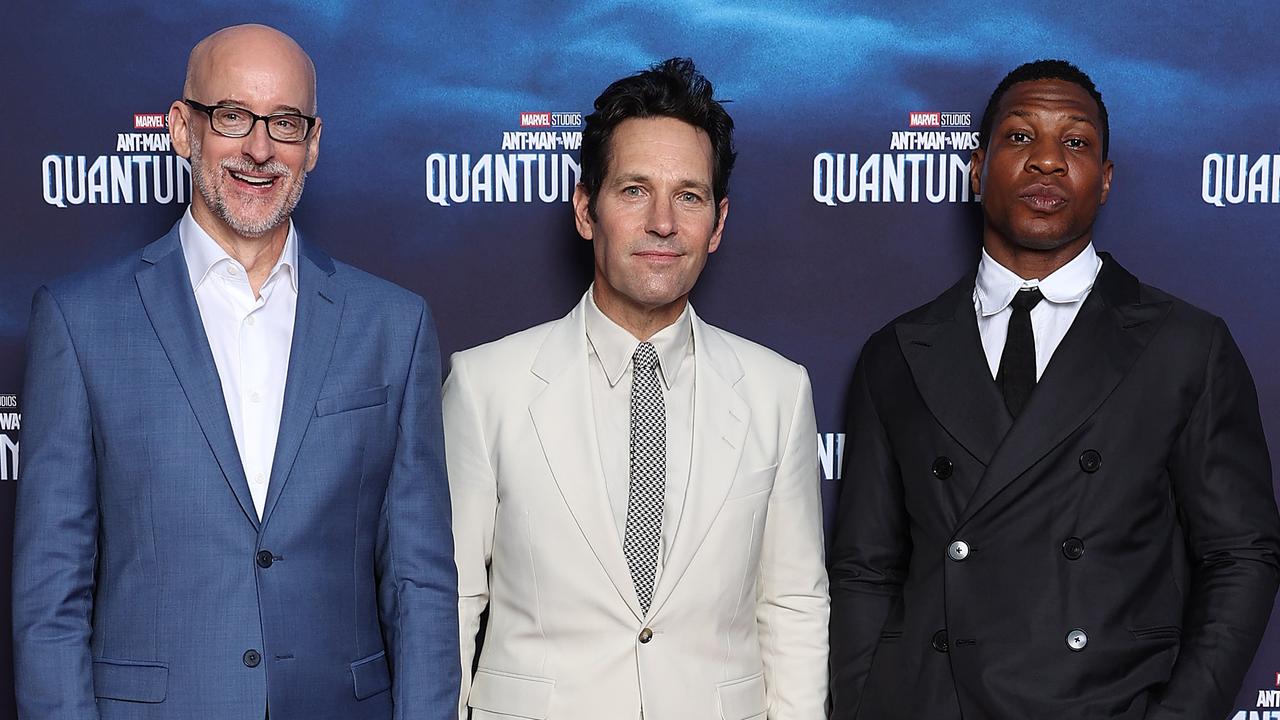
“He’s lost five years with his daughter and that provided fertile ground for us to further explore this very central relationship between Scott and Cassie,” Reed said. “The backbone of the Ant-Man movies is Scott wants to be a hero, but, more importantly, he wants to be a good father to his daughter.”
Playing an onscreen dad grappling with lost time is something Rudd can relate to. He’s more aware of time than he was only a few years ago.
“I have less of it left,” he said. “And I have kids that are growing up, and they’re not toddlers. I have a son who’s a young adult. You take stock in life, and everything else. So I’m extra aware of every little thing.”
Rudd said that sense of limited time has even changed how he’s felt about taking work that requires filming away from home.
“Maybe I don’t want to work because I want to be home with my family, because they’re going to go off to school and I don’t want to miss things.
“When you’re starting off, I will live out of a suitcase, I don’t care where I go, I want to be working all the time. I don’t feel that now, because I really want to treasure what’s important. It’s a little bit like what’s happening to Scott.”
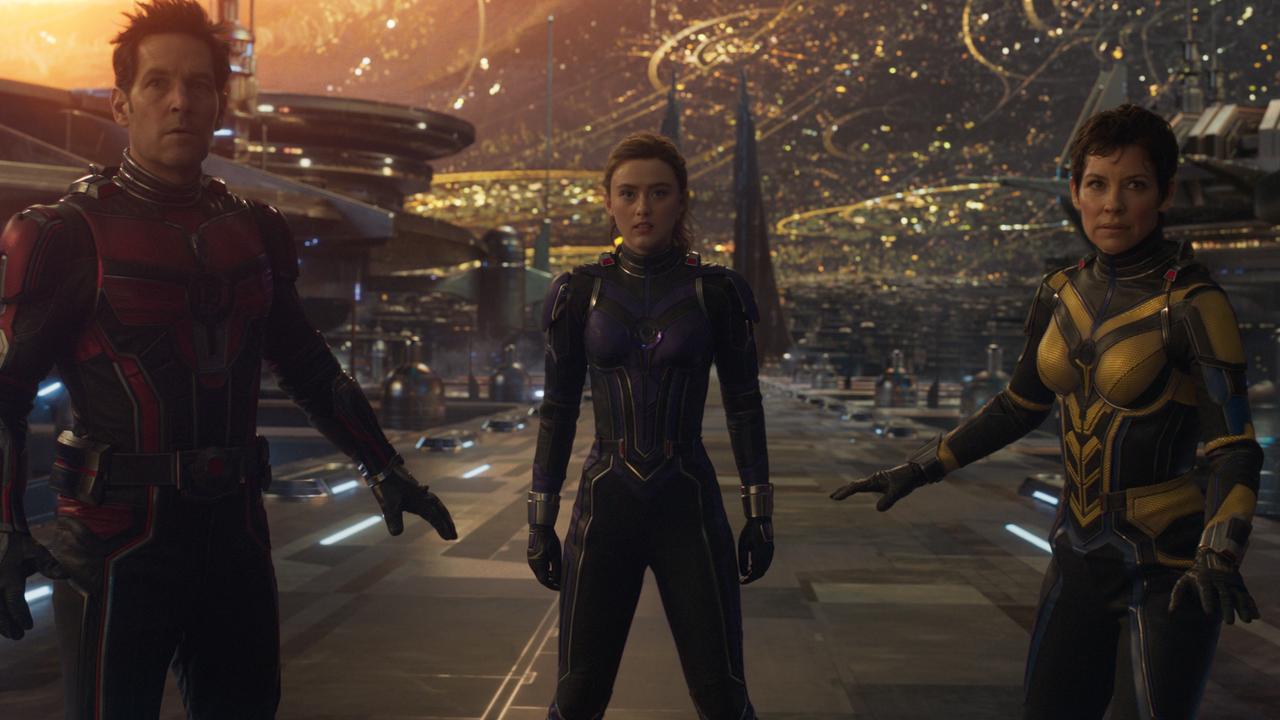
The time that Scott lost in the MCU movies has another strange, unintentional parallel to the real world. Soon after the franchise-shifting events of the Avengers: Endgame movie, the Covid pandemic hit and billions of real people found themselves living through a strange era in which everyone’s lives were up-ended.
Without diminishing the real trauma experienced, there is an odd thematic convergence the Ant-Man crew found themselves confronting.
“Endgame in some ways mirrored this global pandemic, which is crazy to think about, and obviously unintentional,” Reed said. “But you can’t ignore it because people who are just living their lives were affected in some way. And people got sick, and people lost people. And everyone felt more isolated.”
That metaphorical comparison didn’t escape the notice of Jonathan Majors, whose career has been supercharged with his casting as Kang the Conqueror.
“To be gone for that long, or to be shut away for that long, and then to return, there is a certain amount of social, spiritual and emotional atrophy,” he said. “We have the place to express that. Art is probably the only safe place in which you can have a discord like that.”
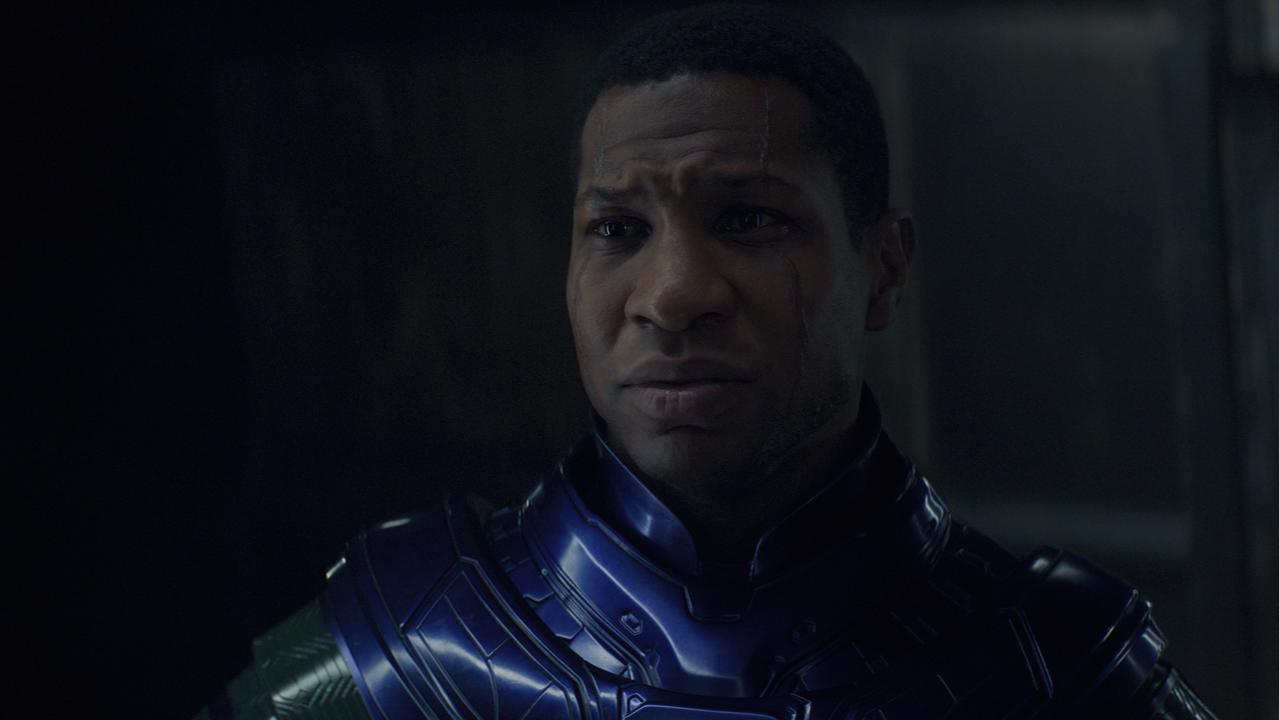
And Majors does see the MCU movies as art, as a conduit for artists to explore human nature, even when the stories are larger-than-life.
“The beautiful thing about Marvel is the faculties it has that can amplify and push messages and stories and points of view forward, and then add incredible worlds to it with textures, sounds, effects and all that,” the actor argued.
“I think about Mark Ruffalo, Robert Downey Jr and Idris Elba. There’s a reason why some of the greatest actors that ever decided to be actors have walked through the MCU – and some have stayed for a very long time – is because the performance, the characterisation, the humanity of these guys is what moves things forward.
“Our heroes and villains have to reflect back to the audiences what they experience.”
Part of that evolution are the shifting ideas of heroism. After the past three years, when frontline workers in health, transport and supermarkets have had their contributions valued in different ways, when young people have made their voices heard, when social movements have reconsidered what we owe to each other, is a hero still a man in a suit with superpowers?
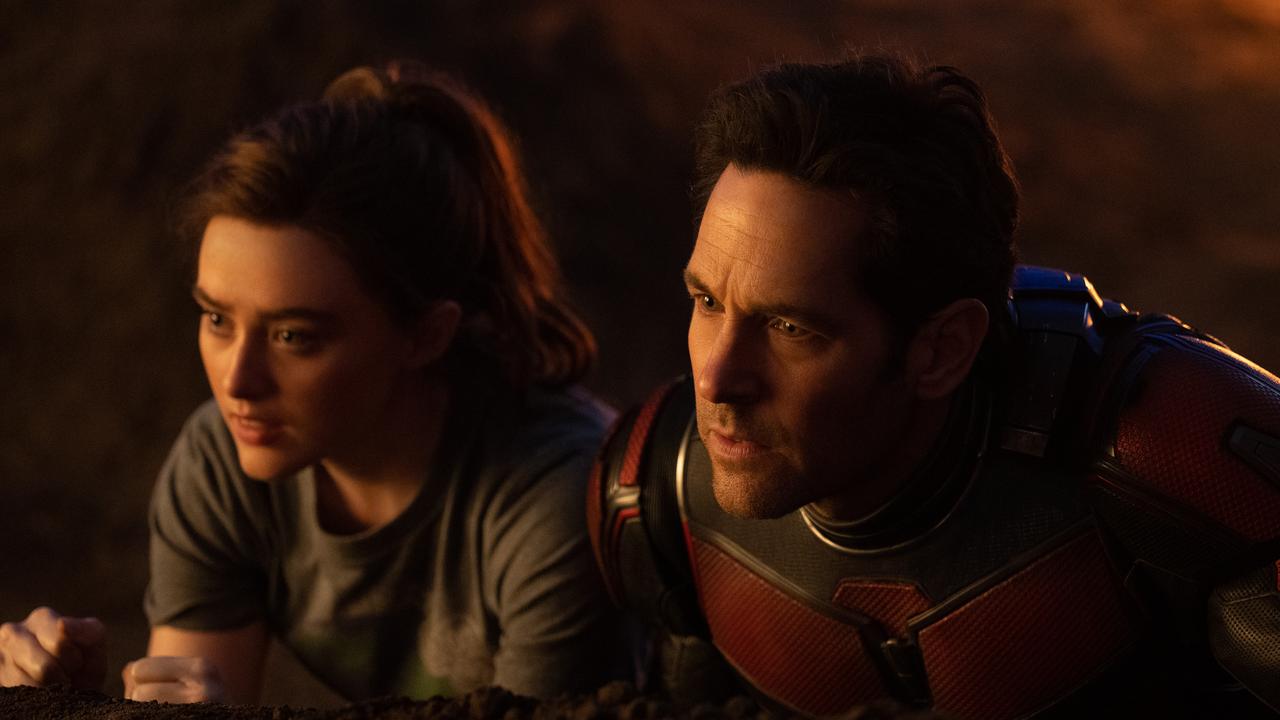
How can the MCU stay relevant in this conversation?
“Marvel is opening this up to heroes we haven’t seen before – maybe to some people that you wouldn’t necessarily think of at first. This world is expecting” Rudd said. “I look at Greta Thunberg or some of the Parkland kids, and go ‘oh my gosh’.
“There are so many young people, from all different backgrounds, all different identities, that are changing the world and doing some heroic things. And it makes sense to me that would be represented in all movies.”
Reed pointed to Cassie’s arc in the film, as a young woman with her own ideas of heroism and what it means.
“She has this sense of idealism, and we see her being active. She’s a bit of an activist at the beginning of the movie,” Reed said. “And throughout the course of this story, these ideals are put to the test.
“I feel like we have in this movie those very real conversations about everything, about what is a hero in the modern world. And if you are a hero, if you have these exceptional powers in this universe, what is the particular brand of injustice that you’re going to tackle?”
Ant-Man and the Wasp: Quantumania is in cinemas now




